What Are the Methods of Aromatherapy
Curious about aromatherapy and its benefits? Whether you’re looking to reduce stress, improve sleep, or relieve pain, aromatherapy might just be the solution you’ve been searching for.
We’ll explore the different methods of aromatherapy, ranging from inhalation to massage. Delve into the essential oils commonly used in aromatherapy, such as lavender, peppermint, and eucalyptus.
Sit back, relax, and let the soothing scents of aromatherapy guide you on a journey to wellness.
Key Takeaways:
What is Aromatherapy?
Aromatherapy is a holistic approach to health and wellness that utilizes essential oils extracted from plants to promote both physical and psychological well-being. It is a complementary alternative medicine (CAM) that has gained recognition for its therapeutic benefits.
Originating from ancient civilizations like Egypt, China, and India, aromatherapy has roots that date back thousands of years, where natural botanical extracts were used for their healing properties.
The principles of aromatherapy revolve around the idea that specific scents can trigger responses in the brain that impact emotions, mood, and even physical health. To learn more about aromatherapy effects, explore our detailed guide.
Essential oils are the cornerstone of aromatherapy, containing concentrated plant extracts that are believed to offer various health benefits.
- Research has shown that essential oils such as lavender, peppermint, and tea tree oil can help reduce stress, alleviate headaches, and boost the immune system.
Due to its growing popularity, aromatherapy is now integrated into various healthcare practices, including massage therapy, spa treatments, and even hospital settings.
How Does Aromatherapy Work?
Aromatherapy works by stimulating the olfactory system, which is linked to the brain’s limbic system responsible for regulating emotions, memories, and hormonal responses. When essential oils are inhaled or applied, they trigger neurotransmitter release and impact various body functions.
Through this intricate process, the essential oils initiate a cascade of reactions within the body, influencing not just the physical symptoms but also the psychological realm.
For instance, the scent of lavender can promote relaxation and alleviate stress by modulating neurotransmitters like serotonin and dopamine. Similarly, the zesty aroma of citrus oils can uplift mood and boost energy levels due to their interaction with the limbic system, which governs mood and emotions.
What Are the Benefits of Aromatherapy?
Aromatherapy offers a range of benefits supported by research, including reduced anxiety, improved sleep quality, pain relief, and immune system enhancement. Studies have also shown potential benefits in managing conditions like dementia and mitigating associated risks.
Research has indicated that specific essential oils, such as lavender and chamomile, have calming effects that can help alleviate symptoms of anxiety and promote relaxation. These oils work by influencing the limbic system, the part of the brain that controls emotions. Aromatherapy has been found to improve cognitive function in individuals with dementia, with certain scents, like rosemary, shown to enhance memory performance.
While aromatherapy presents numerous advantages, it is important to note that some individuals may experience adverse reactions, especially with concentrated forms of essential oils. Precautionary measures, such as proper dilution, skin patch testing, and seeking professional guidance, can help mitigate these risks and ensure safe usage.
Reduces Stress and Anxiety
Aromatherapy has been proven to be effective in reducing stress and anxiety levels in individuals, offering a natural and holistic approach to managing these conditions.
Specific essential oils play a crucial role in the success of aromatherapy treatments. Lavender oil, with its calming properties, is widely recommended for alleviating anxiety and promoting relaxation. Chamomile oil is another popular choice known for its ability to soothe nerves and induce a sense of peace.
Plus oils, diffusers are commonly used to disperse the scents into the air, creating a soothing atmosphere that helps in reducing stress levels. Inhalation techniques, such as direct palm inhalation or using a personal inhaler, are also effective ways to experience the benefits of aromatherapy.
Improves Sleep Quality
Aromatherapy is known for its ability to improve sleep quality by promoting relaxation and providing a calming effect that supports better restorative sleep cycles.
In terms of essential oils with sedative properties, lavender oil is often a popular choice for its soothing aroma that helps alleviate anxiety and stress, making it easier to drift off into a peaceful slumber. Another effective option is chamomile oil, known for its mild sedative effects that aid in reducing insomnia symptoms and promoting a sense of tranquility.
Plus using these oils in a diffuser, incorporating them into a relaxing massage or bath can further enhance their therapeutic benefits, creating a sensory experience that contributes to a calm and serene sleep environment.
Relieves Pain and Inflammation
Aromatherapy has been utilized to relieve pain and inflammation through massage techniques and topical application of essential oils that target specific areas of discomfort or soreness.
By leveraging the capabilities of aromatherapy, individuals can experience natural pain relief without relying solely on pharmaceutical interventions. The use of essential oils not only offers a pleasant sensory experience but also provides tangible benefits for managing pain and inflammation effectively. When applied through massage therapy, these oils penetrate deep into the skin, promoting relaxation and easing muscle tension, thereby enhancing the body’s ability to heal itself.
Some key essential oils renowned for their analgesic and anti-inflammatory properties include lavender, peppermint, and eucalyptus. Lavender is known for its calming effects, making it ideal for reducing tension-related pain, while peppermint’s cooling sensation can alleviate headaches and muscular aches. Eucalyptus, with its refreshing aroma, is often used to ease respiratory discomfort and joint pain.
Boosts Immune System
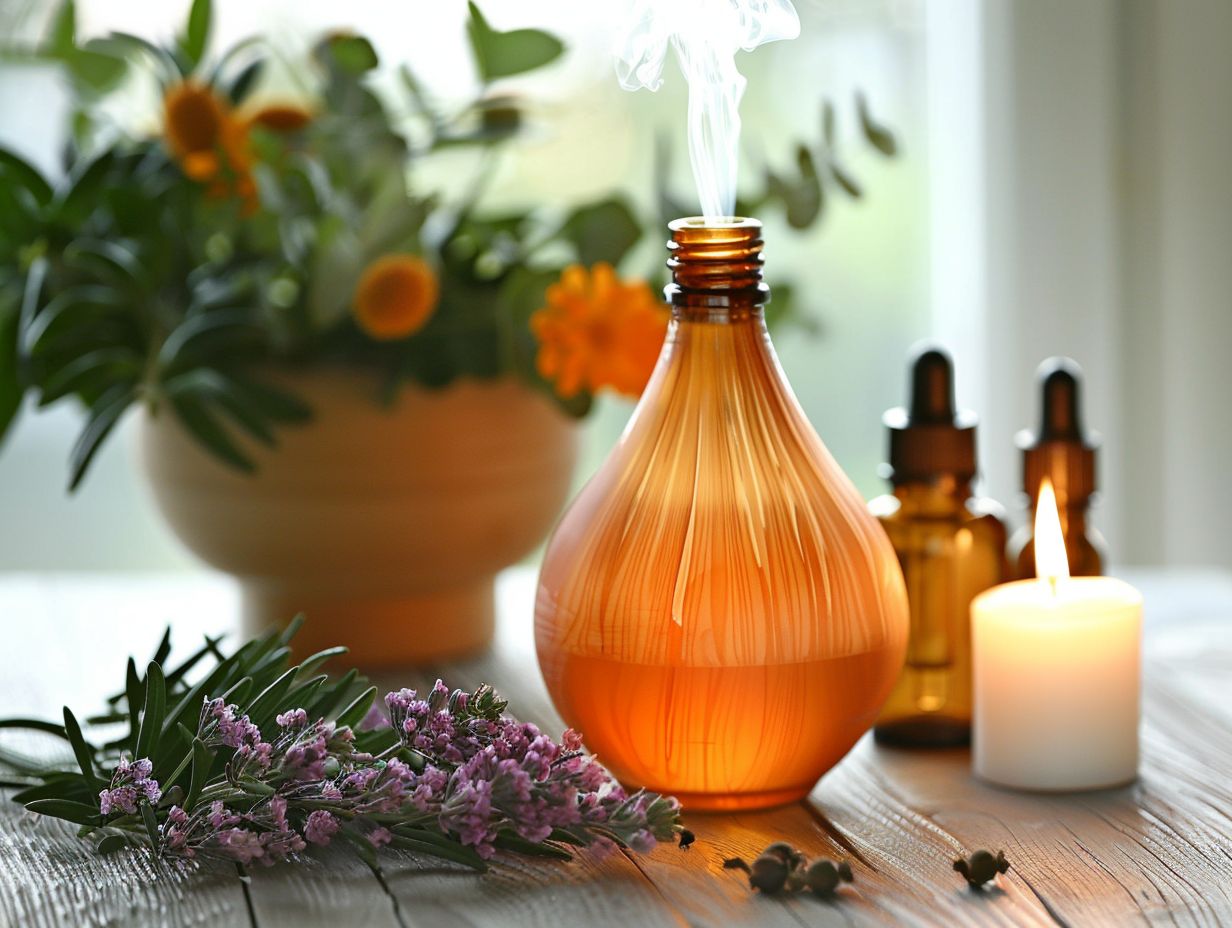
Specific essential oils such as Eucalyptus, Peppermint, and Oregano are renowned for their ability to clear congested nasal passages, relieve coughs, and combat bacterial infections, thereby fortifying the respiratory system. Thyme oil stands out for its antiviral properties that can help ward off respiratory illnesses. Oils like Ginger and Fennel aid in digestion by promoting healthy gut function and soothing digestive discomfort. It is essential to dilute oils properly before ingestion and consult a healthcare professional for guidance on safe usage.
What Are the Different Methods of Aromatherapy?
Aromatherapy utilizes various methods of application, including inhalation, topical application with carrier oils for dilution, aerial diffusion, direct inhalation, bathing, and massage, each offering unique therapeutic benefits.
In terms of the significance of carrier oils in aromatherapy, they play a crucial role in diluting essential oils to make them safe for topical use. Carrier oils are essential for reducing the risk of skin irritation or sensitization caused by direct application of potent essential oils. The process of dilution not only ensures safe usage but also helps in enhancing the absorption of the oils into the skin, maximizing their therapeutic effects. Common carrier oils like coconut, jojoba, and almond oil are frequently used for this purpose.
Inhalation
Inhalation is a common method of aromatherapy that involves the direct inhalation of essential oils, typically through diffusers, steam inhalation, or personal inhalers, to achieve therapeutic benefits.
In terms of inhalation in aromatherapy, understanding the different techniques is key.
- Diffusion involves dispersing essential oils into the air using a diffuser, providing a gentle and continuous release of the aroma.
- Steam inhalation, on the other hand, involves adding essential oils to hot water, creating steam for inhalation that can offer respiratory support and help clear congestion.
Both methods can promote emotional well-being and relaxation, making them popular choices for holistic wellness.
Topical Application
Topical application of essential oils is a popular aromatherapy method that involves diluting oils with carrier oils and applying them directly to the skin through massage therapy for therapeutic effects.
By applying essential oils topically, the skin can directly absorb the beneficial properties, allowing for targeted relief of various ailments. The process of diluting essential oils with carrier oils is crucial as it helps to reduce the risk of skin irritation or sensitivity, ensuring safe and effective use.
When incorporated into massage therapy, the topical application of essential oils can enhance the overall experience by promoting relaxation, reducing muscle tension, and improving circulation. This can result in a more holistic approach to wellness and stress relief.
Special considerations need to be taken into account when using essential oils topically, especially for pregnant individuals. Certain oils are contraindicated during pregnancy, so it is essential to consult a qualified professional to ensure the safety of both the mother and baby.
Aerial Diffusion
Aerial diffusion involves dispersing essential oils into the air using diffusers, creating a calming and therapeutic atmosphere that promotes relaxation and improves air quality.
There are several methods of aerial diffusion, with popular choices being ultrasonic, nebulizing, heat, and evaporative diffusers. Ultrasonic diffusers use water and ultrasonic waves to break down essential oils into a fine mist, while nebulizing diffusers disperse oils in a pure form without heat or water. Heat diffusers work by gently heating the oils to release their aroma, and evaporative diffusers use a fan to blow air through a pad soaked in essential oils. To learn more about different types of aromatherapy, you can explore our detailed guide.
The benefits of aerial diffusion go beyond just creating a pleasant smell. Essential oils released into the air can impact emotional well-being by reducing stress, anxiety, and promoting relaxation. They can also help enhance mental clarity and focus, making them useful for meditation or work environments. Diffusing essential oils can purify the air, eliminating bacteria, mold, and other harmful particles, thus improving indoor air quality and making the environment healthier and more pleasant.
Direct Inhalation
Direct inhalation in aromatherapy involves inhaling essential oils from the bottle or a cloth, providing immediate therapeutic benefits, although caution is advised as certain oils may irritate sensitive individuals.
When practicing direct inhalation, the aromatic compounds of essential oils are quickly absorbed through the nasal passages, reaching the bloodstream and impacting the limbic system, which is responsible for emotions and memory.
This method can offer fast relief for headaches, nausea, or stress, making it a popular choice for on-the-go relaxation.
Individuals with respiratory conditions or skin sensitivities should be aware of potential irritants that could trigger adverse reactions. It is vital to perform a patch test and start with diluted oils to minimize any risks.
Bathing
Aromatherapy bathing involves adding essential oils to bathwater to create a relaxing and therapeutic experience that enhances both physical and emotional well-being, offering a luxurious way to enjoy aromatherapy products.
By carefully selecting specific essential oils, individuals can customize their bathing experience based on their desired outcomes. Lavender, known for its calming properties, is often used to promote relaxation and stress relief, while citrus oils like lemon and orange can provide an invigorating and refreshing effect.
The steam from the warm bathwater helps to disperse the aromatic molecules, allowing them to be inhaled and absorbed through the skin, facilitating the oils’ therapeutic benefits. This process can aid in improving mood, reducing anxiety, and promoting a sense of overall well-being.
Massage
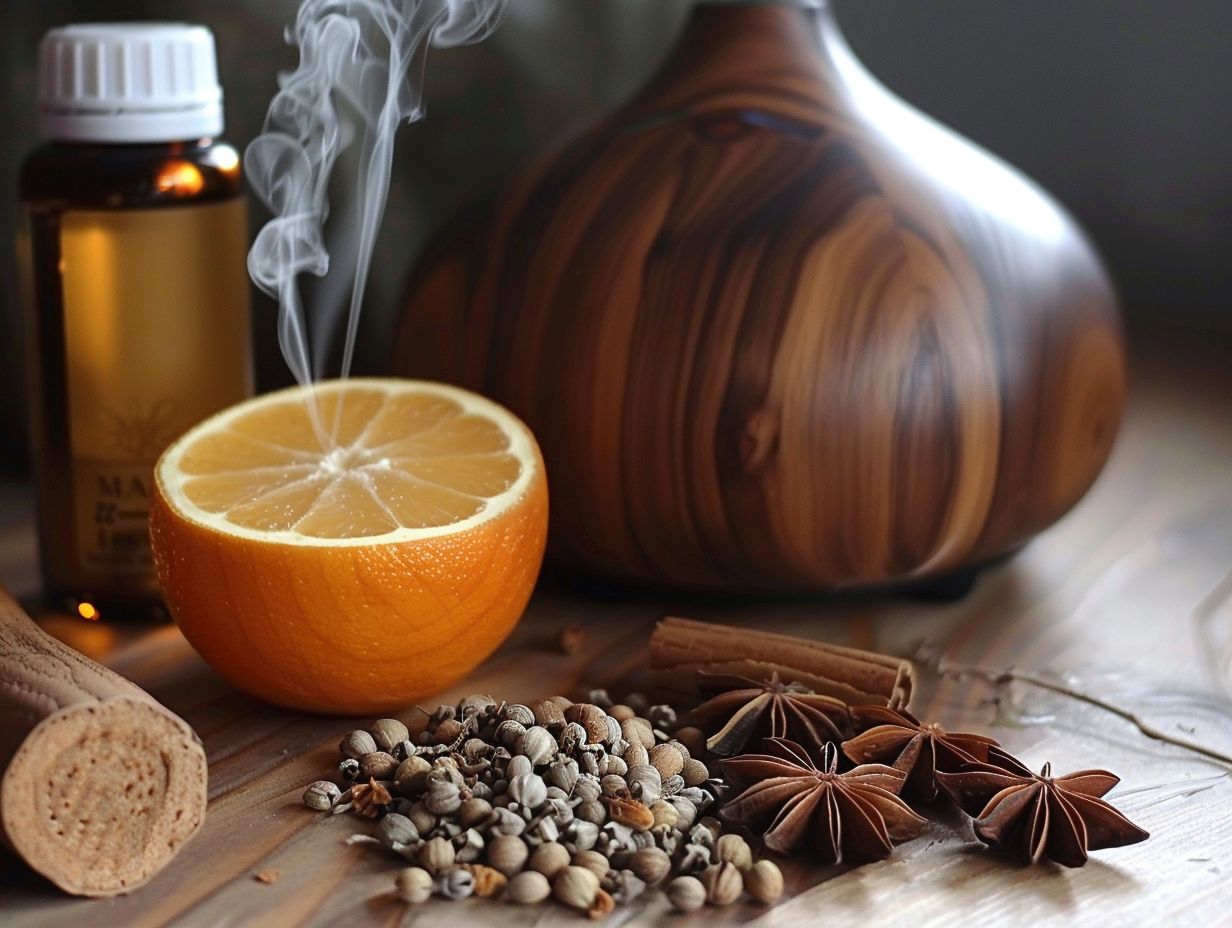
Massage therapists trained in aromatherapy understand the power of scent and touch in promoting physical and emotional balance. By incorporating certified organic essential oils like lavender, peppermint, or chamomile into their sessions, they can enhance the overall experience for their clients.
Professional certification ensures that therapists have the skills and knowledge to create personalized blends that address specific needs, whether it be stress relief, muscle tension, or improving circulation.
The therapeutic benefits of aromatherapy massage are numerous, ranging from reducing anxiety and depression to boosting the immune system and improving sleep quality.
What Essential Oils Are Used in Aromatherapy?
Several essential oils are commonly used in aromatherapy, including popular options like lavender, peppermint, eucalyptus, tea tree, and lemon, each offering unique therapeutic benefits and aromatic profiles.
These oils have been cherished for centuries for their healing properties, with lavender known for promoting relaxation and sleep, peppermint for its invigorating and cooling effects, and eucalyptus for its respiratory support. Tea tree oil is renowned for its antiseptic qualities, making it a staple in skincare, while lemon oil is valued for its uplifting and cleansing characteristics.
Whether diffused, applied topically, or used in massage oils, each of these essential oils can enhance wellness and create a calming atmosphere. Their versatility in addressing various physical and emotional concerns makes them critical in the practice of aromatherapy.
Lavender
Lavender essential oil is widely used in aromatherapy for its calming and relaxing properties, making it a popular choice for stress relief and therapeutic treatments.
Its soothing scent can help individuals unwind and relax, reducing anxiety and promoting a sense of well-being. Professionals in the field of aromatherapy often incorporate lavender oil into massage therapies, diffusers, and bath products to enhance their clients’ therapeutic experience.
Not only does lavender oil relieve stress and anxiety, but it also aids in improving sleep quality. With its gentle nature, it is a preferred choice for those seeking natural remedies for insomnia and relaxation. Incorporating lavender essential oil into one’s daily routine can have a profound impact on mental and emotional well-being.
Peppermint
Peppermint essential oil is known for its invigorating and refreshing properties in aromatherapy, offering benefits for digestive health, respiratory support, and mental clarity, although certain risks should be considered.
Aromatherapy using peppermint oil has shown promising effects on alleviating digestive issues such as bloating, gas, and indigestion. Its carminative properties help relax the digestive muscles, easing discomfort. When inhaled, peppermint oil can also aid in opening up the airways, making it beneficial for respiratory conditions like congestion and sinusitis. The invigorating scent of peppermint oil can enhance alertness and cognitive function, making it a popular choice for boosting focus and concentration during work or study.
Eucalyptus
Eucalyptus essential oil is commonly used in aromatherapy for its immune-boosting properties and respiratory benefits, offering therapeutic support for colds, congestion, and overall well-being with a focus on safety considerations.
One of the key components of eucalyptus oil, 1,8-cineole , is known for its decongestant and expectorant properties, making it a valuable tool in combatting respiratory issues. When inhaled, this compound can help clear the airways, ease breathing difficulties, and promote a sense of relief.
Incorporating eucalyptus oil into your daily routine can provide a natural approach to supporting your immune system, helping to ward off common colds and flu viruses. It acts as a shield, bolstering your body’s defenses against external threats.
It’s essential to exercise caution when using eucalyptus oil, as its high concentration can be potent and may cause skin irritation if not properly diluted. Always perform a patch test before widespread use and consult a healthcare professional, especially if you have underlying health conditions or are pregnant.
Tea Tree
Tea tree essential oil is renowned for its antibacterial and antifungal properties in aromatherapy, making it a versatile choice for skin care, wound healing, and promoting skin quality.
In terms of skin enhancement, tea tree oil stands out for its ability to combat acne, eczema, and psoriasis due to its purifying effects. Its innate antimicrobial nature helps cleanse the skin and unclog pores, preventing breakouts and promoting a clearer complexion. The oil’s anti-inflammatory properties can soothe irritated skin, reducing redness and swelling.
Lemon
Lemon essential oil is valued in aromatherapy for its uplifting and cleansing properties, offering benefits for mood enhancement, immune support, and household applications, with an emphasis on proper dilution and caution during use.
When used in aromatherapy, the citrusy aroma of lemon oil can promote feelings of joy and positivity, making it a popular choice for battling stress and anxiety. Its antiseptic properties also make it a great natural cleanser for purifying the air and surfaces. It’s vital to note that proper dilution is crucial to prevent skin irritation or sensitization when applying topically. For immune support, a few drops in a diffuser or diluted in a carrier oil can help boost the body’s defenses against seasonal threats.
Frequently Asked Questions
What Are the Methods of Aromatherapy?
Aromatherapy is the use of essential oils to improve one’s physical and emotional well-being. There are several methods of aromatherapy that can be used to experience the benefits of essential oils. Here are six frequently asked questions and answers about the various methods of aromatherapy.
What is Inhalation Aromatherapy?
Inhalation aromatherapy involves breathing in essential oils through the nose or mouth. This can be done by using a diffuser, adding essential oils to hot water and inhaling the steam, or simply by placing a few drops of oil on a tissue and breathing it in.
What is Topical Aromatherapy?
Topical aromatherapy involves applying essential oils directly to the skin. This can be done by diluting the oils with a carrier oil (such as jojoba or almond oil) and massaging it into the skin, or by adding a few drops of oil to a bath or compress.
What is Aromatherapy Massage?
Aromatherapy massage combines the benefits of massage therapy with the use of essential oils. The oils are diluted and applied to the skin during the massage, providing both physical and emotional benefits.
What is Aromatherapy Inhaler Therapy?
Aromatherapy inhaler therapy is a convenient and portable method of aromatherapy. Essential oils are added to a small inhaler and can be used throughout the day to promote relaxation, relieve stress, or ease congestion.
What is Aromatherapy Diffusion?
Aromatherapy diffusion involves using a diffuser to disperse essential oils into the air. This method can be used to improve the air quality in a room, promote relaxation, or provide therapeutic benefits.
What is Aromatherapy Bathing?
Aromatherapy bathing is a relaxing and therapeutic way to experience the benefits of essential oils. Essential oils are added to a warm bath and can help to relieve muscle tension, improve circulation, and alleviate stress and anxiety.

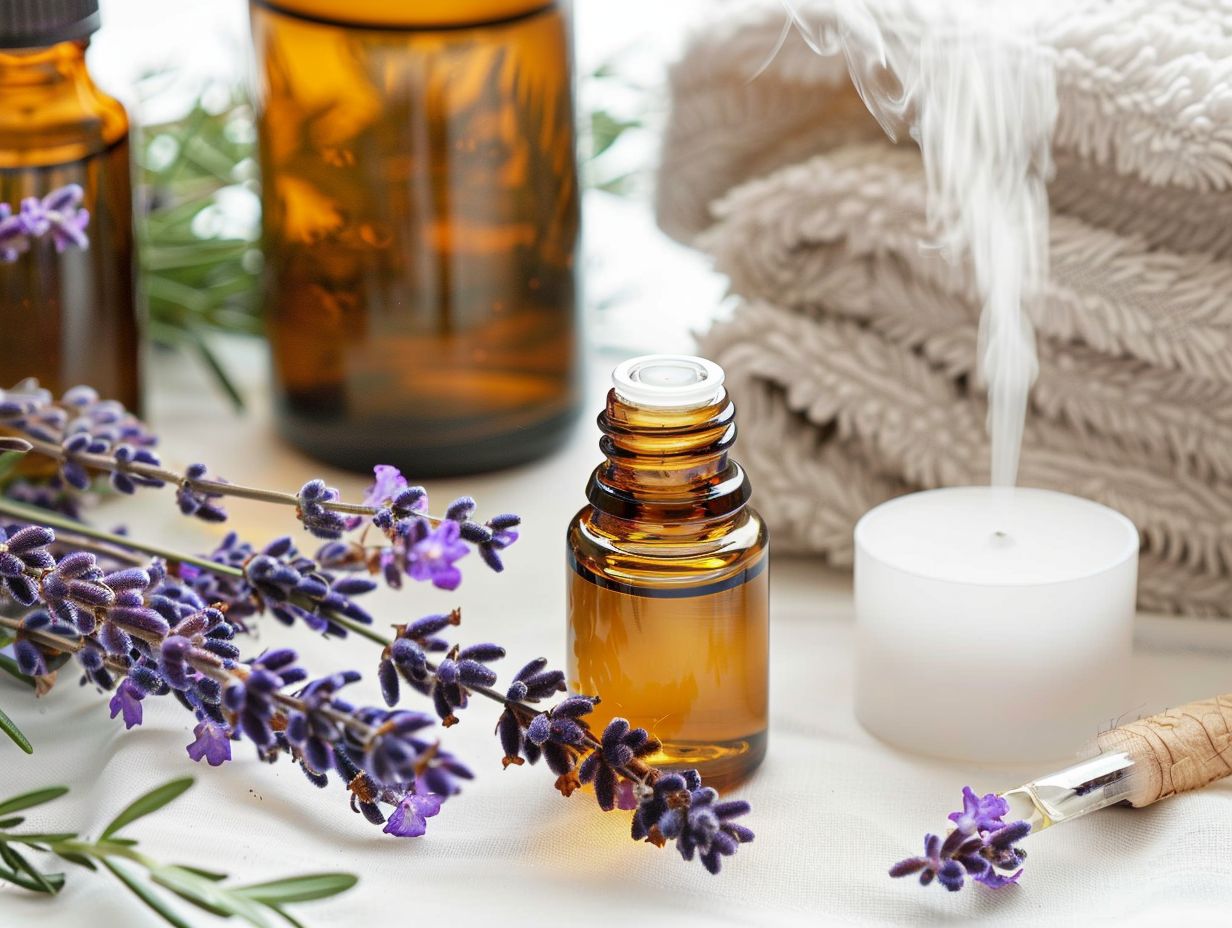
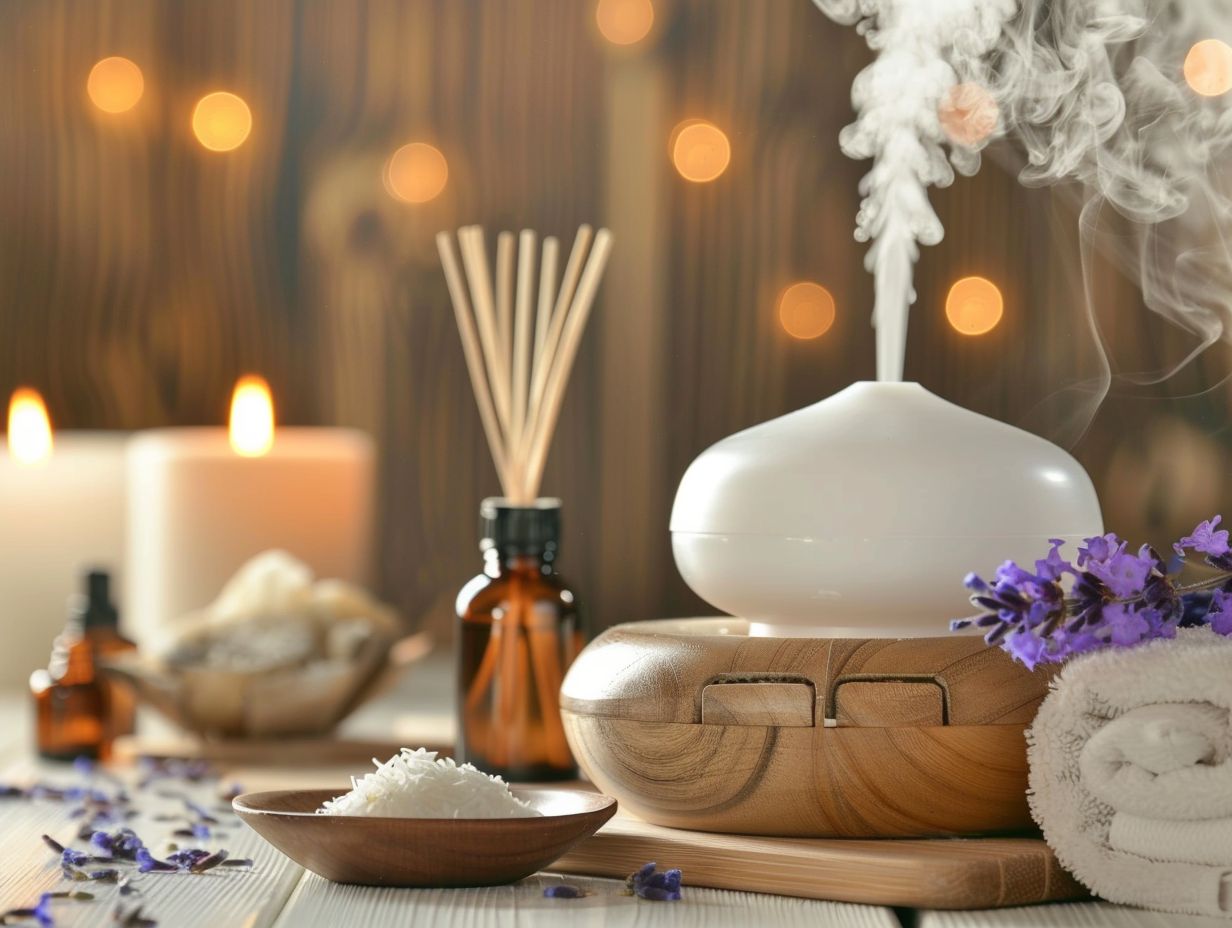

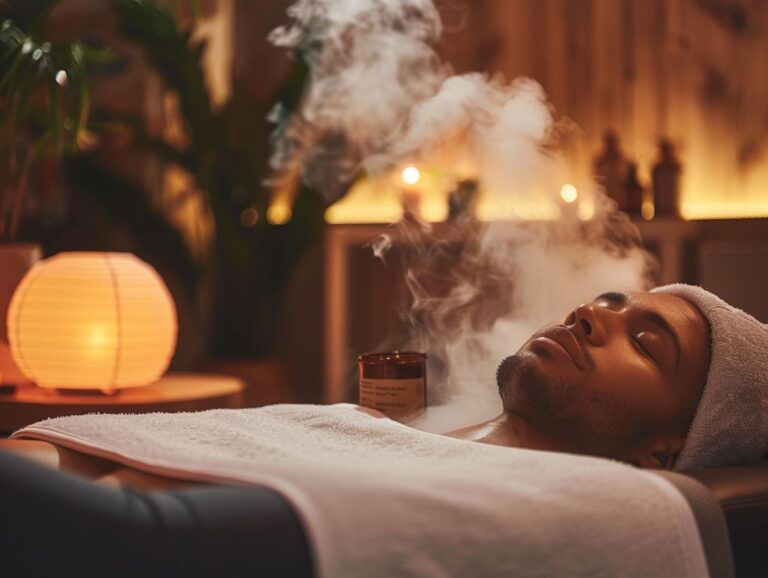
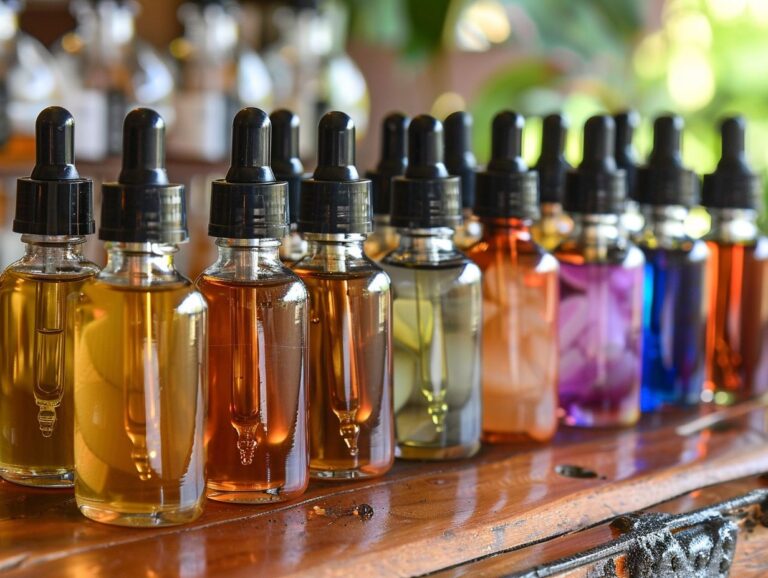

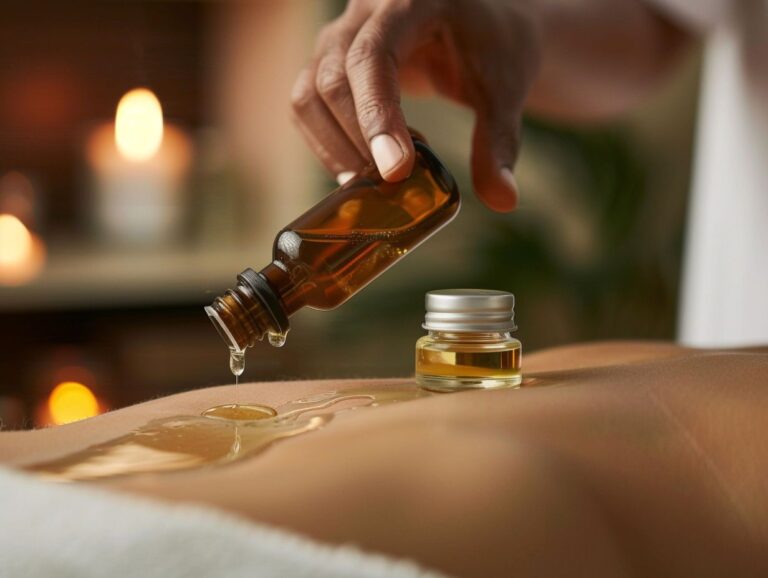
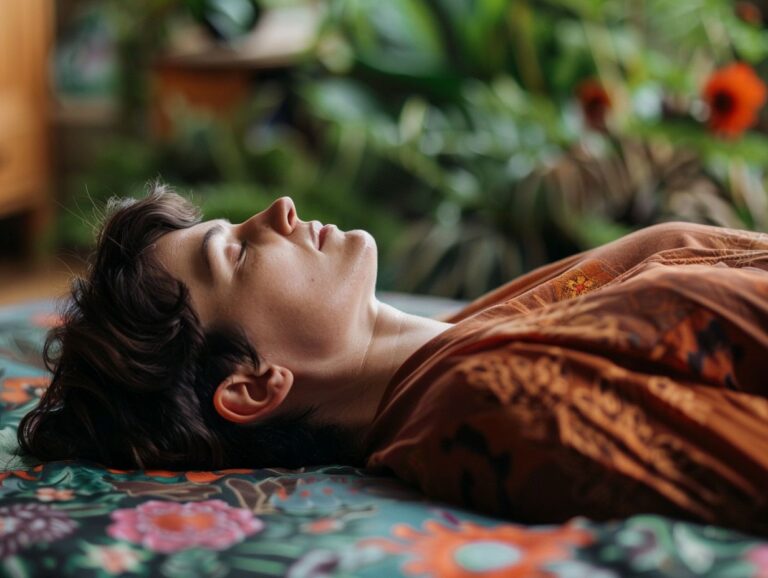
One Comment